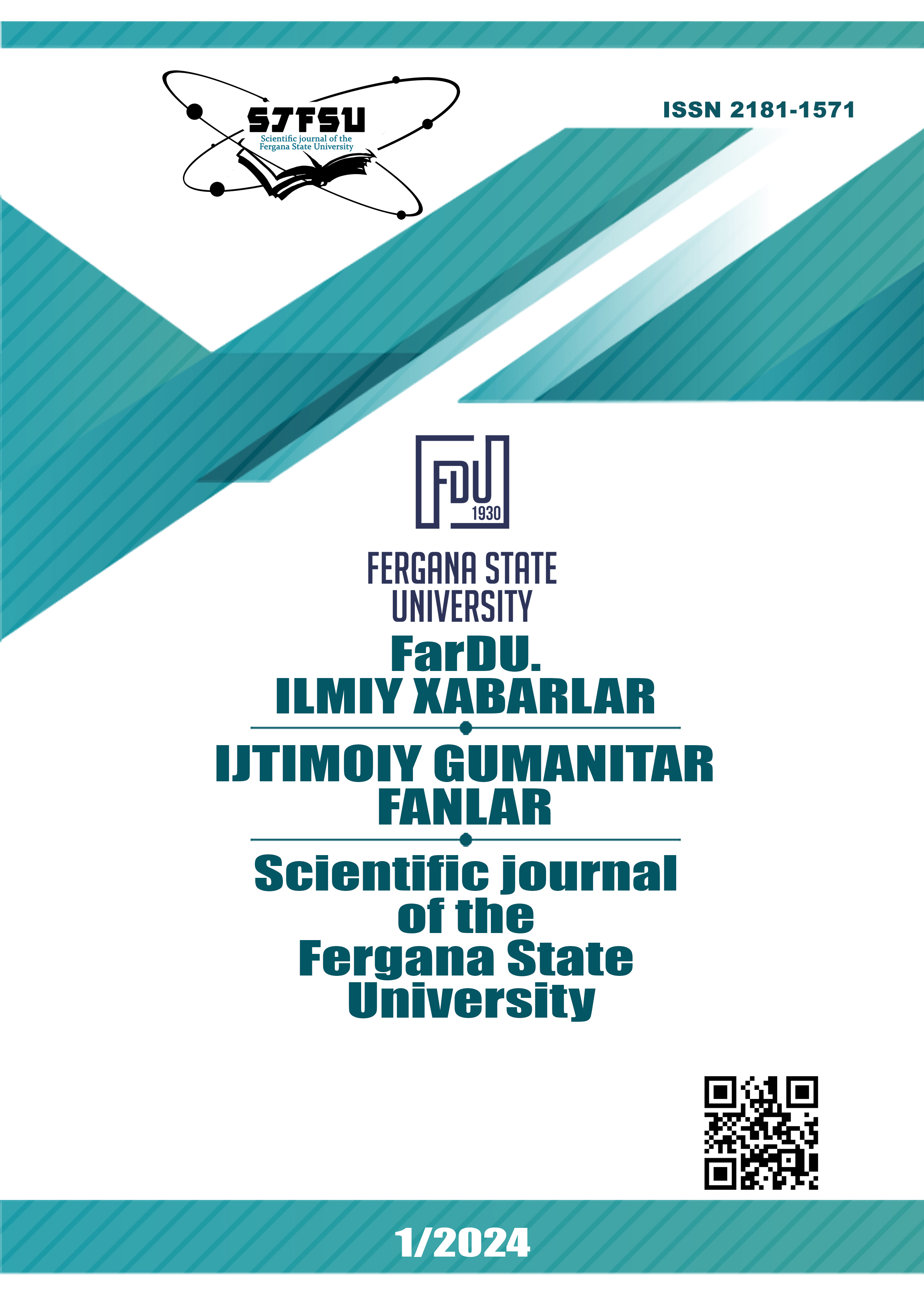ANALYSIS OF THE PHILOSOPHICAL VIEWS OF THE MEDIEVAL THINKERS ON THE RENEWAL OF SOCIETY IDEOSPHERE
Keywords:
society, ideosphere, culture, spiritual heritage, enlightenment, concept, state, science, justice, perfect person, civilization, worldview.Abstract
This article is devoted to revealing the evolution of philosophical ideas and views that influenced the development of a democratic society, the genesis and dynamics of development, in which the question of the role of enlightenment and education in the renewal of the ideosphere of society and its renewal, world sciences acquisition is analyzed. In this, the medieval thinkers of the East investigated the issue of the impossibility of progress without the development of knowledge, based on scientific knowledge methods such as analysis and synthesis, comparative analysis, and generalization. Philosophical ideas, views and teachings, imbued with the commonality of national and universal ideas and goals, serve the democratic development of humanity and are revealed to be valuable as a philosophical heritage. The article emphasizes the consideration of the renewal of the ideosphere of the society in democratic development and the recognition of the objective laws of the development of the society. The scientific-philosophical views of the great thinkers, scholars and public figures who worked in the Middle Ages on the renewal of the society's ideosphere were deeply researched, and it was found that it is a factor in the intellectual and spiritual development of the young generation and it is justified that they form a sense of initiative, responsibility, self-sacrifice and involvement in their minds and serve the national development of our people.
References
Зиёмуҳаммадов Б. Комиликка элтувчи китоб. –Т., “Турон-иқбол”, 2006. –352 б.
Юсубов Д.А. Саитходжаев Х.Б. Мавлянов А.А. Фалсафа. –Т., “Ўзбекистон Республикаси ИИВ Академияси”, 2012. – 146 б.
Абу Наср Форобий. Фозил одамлар шаҳри (Масъул муҳаррир: М.Хайруллаев, М.Жакбаров). –Т., “Янги аср авлоди”, 2016. –320 б.
Абу Райҳон Беруний. Танланган асарлар II. (Масъул муҳаррирлар: Ғ.Жалолов, А.Ирисов)–Т., “Фан”, 1965. –538 б.
Хайруллаев М. Ўзбекистонда ижтимоий-фалсафий фикрлар тарихидан. –Т., “Ўзбекистон”, 1995. –240 б.
Ибн Сино. Фалсафий қиссалар (Ирисов А.). –Т., “Бадиий адабиёт нашриёти”, 1963. –48 б.
Низомулмулк. Сиёсатнома (“Сияр ул-мулук”) (Масъул муҳаррир: Шариф Холмурод). –Т., “Янги аср авлоди”, 2015. –312 б.
Назаров Қ. Фалсафа асослари. –Т., “Ўзбекистон файласуфлари миллий жамияти”, 2018. –102 б.
Аҳмедов Б. Амир Темур ўгитлари. –Т., “Ўзбекистон”, 2007. –64 б.
Темур тузуклари. Таҳрир ҳайъати: Б.Абдуҳалимов ва б. –Т., “Ўзбекистон”, 2016. –184 б.
Аҳмедов А. Улуғбек Муҳаммад Тарағай. –Т., “Ўзбекистон”, 2011. –48 б.
Алишер Навоий. Мукаммал асарлар тўплами. Хамса. Ҳайратул-аброр. (Йигирма томлик, еттинчи том) –Т.: “Фан”, 1991. –392 б.
Downloads
Published
Issue
Section
License
Copyright (c) 2024 Scientific journal of the Fergana State University

This work is licensed under a Creative Commons Attribution-NonCommercial-NoDerivatives 4.0 International License.

